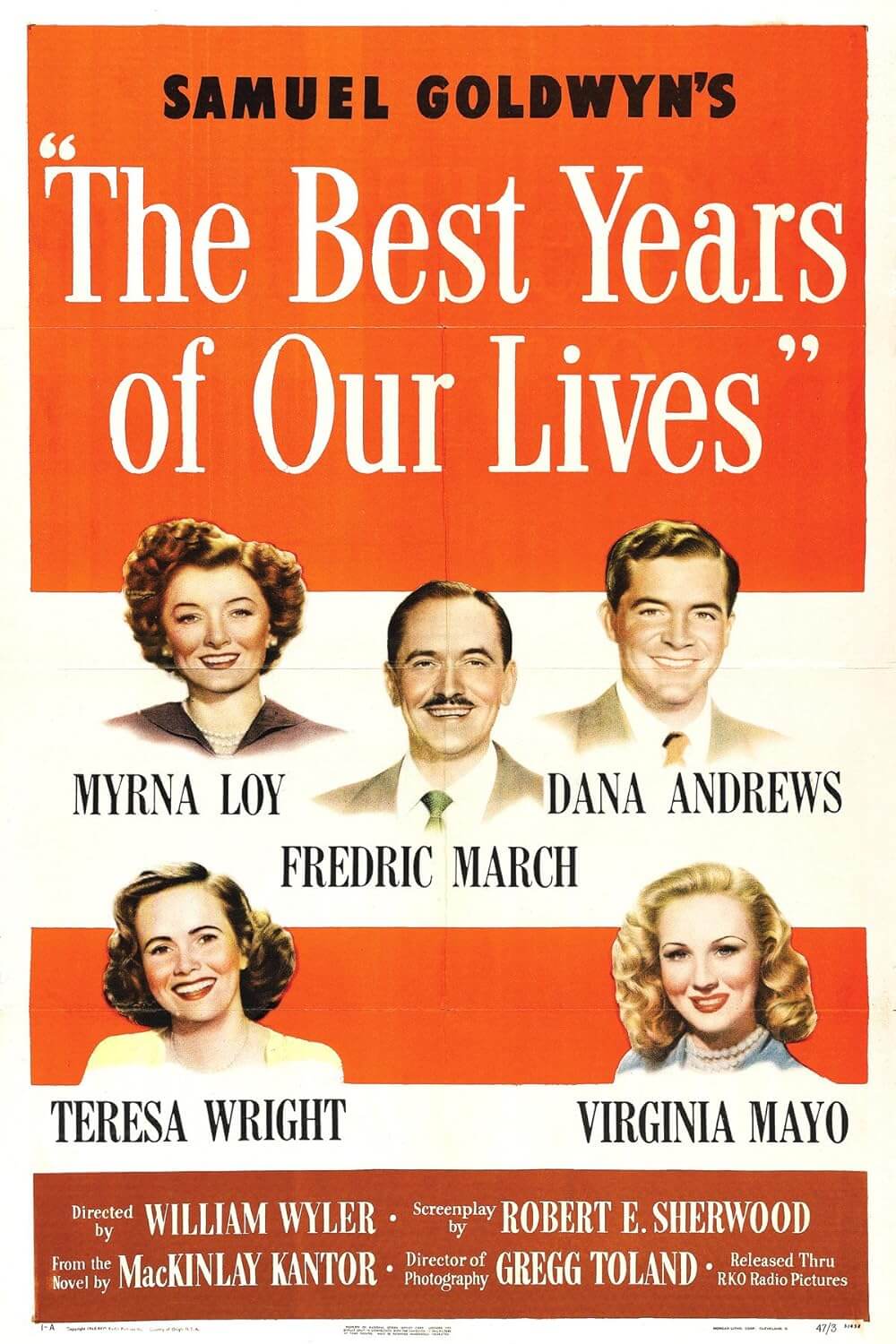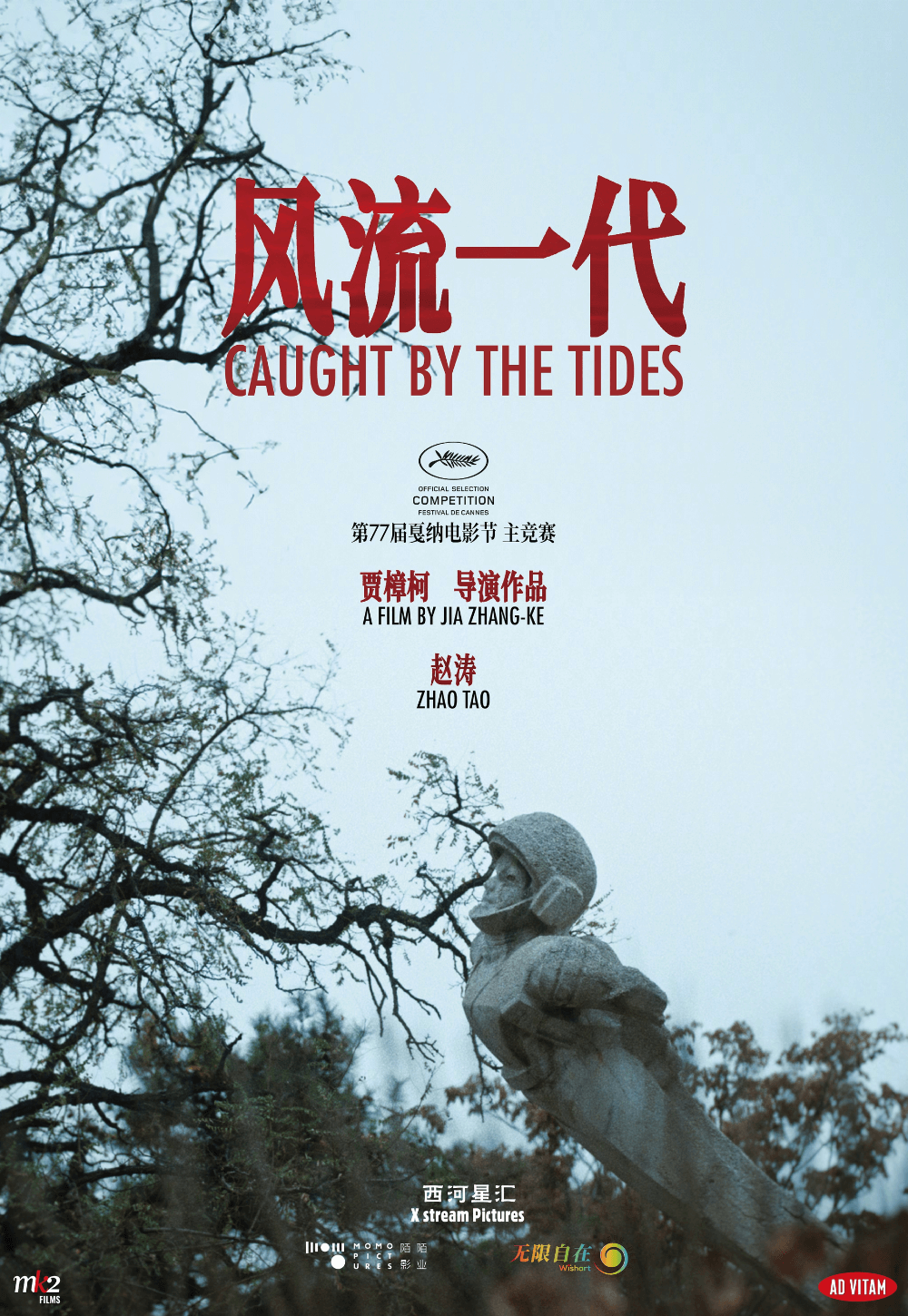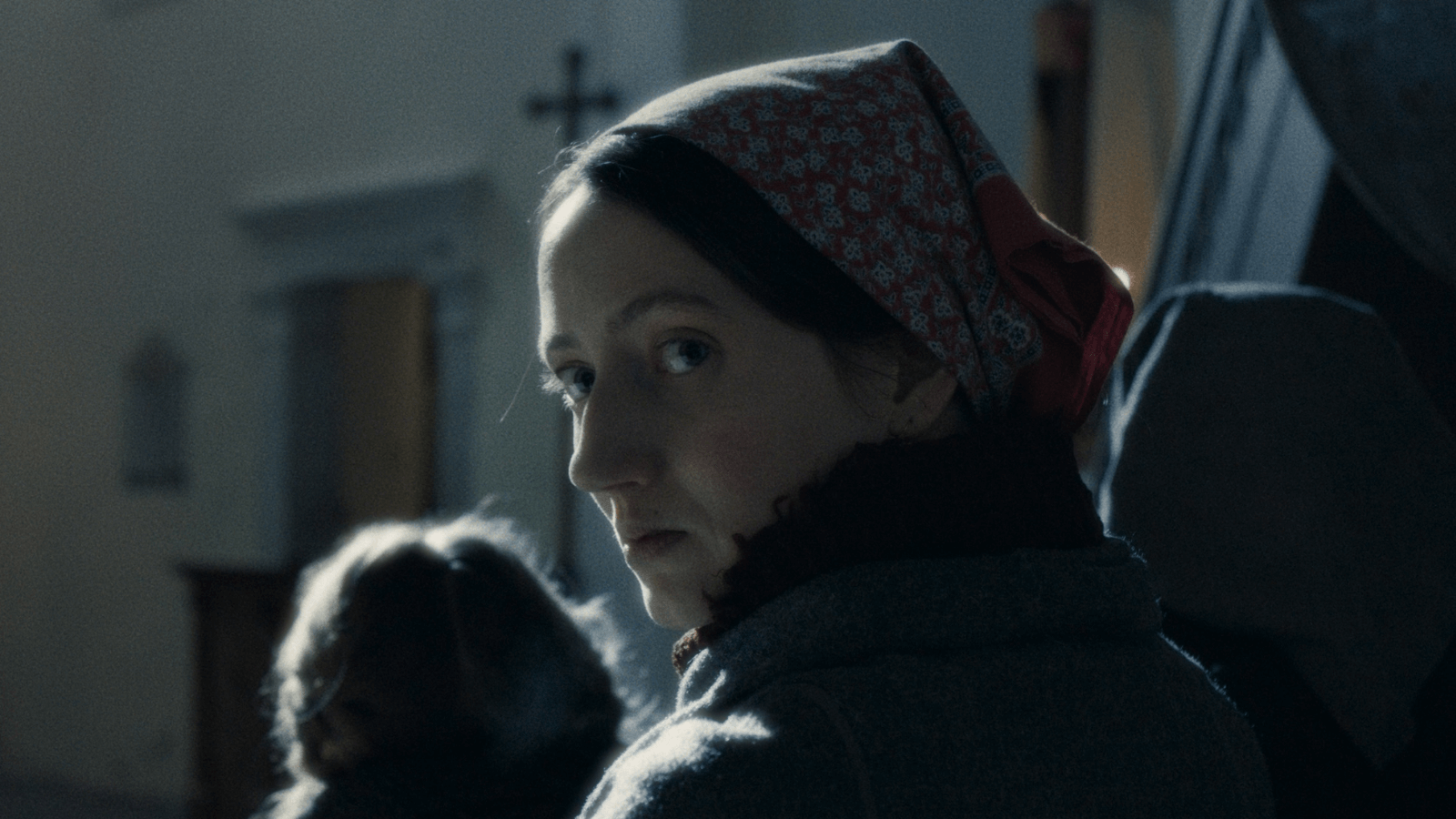
Vermiglio
By Brian Eggert |
Note: Distributed by Janus Films and Sideshow, Vermiglio will play at The Main Cinema in Minneapolis starting February 20, 2025.
Set in 1944, with the end of World War II approaching, Vermiglio tells the story of the titular mountain village nestled in the Italian Alps. Central is the Graziadei family, headed by Cesare (Tommaso Ragno), a wise town elder and teacher at the local schoolhouse. Cesare has nine children with Adele (Roberta Rovelli), including a sick infant, and their fates are Cesare’s to decide. Teaching in a small one-room classroom, he uses test scores to determine the children’s fate. Do they have enough potential to warrant further schooling, or will they be relegated to the fields or become homemakers? No matter their ambitions, Cesare has the final word. Writer-director Maura Delpero’s third feature is a portrait of a strictly patriarchal community, where the fallible choices of one powerful man have reverberating effects on his family and others. In the press notes, Delpero says she hoped to “pay homage to a collective memory,” but she also presents an isolated town in contrast to the modern world, revealing its harmony and its downfalls. Thoughtfully crafted and structured, Vermiglio is a quiet, moving examination of how Cesare’s power impacts his children’s lives, particularly his three daughters.
Vermiglio was Italy’s submission to the 2025 Academy Awards, but, unfortunately, it didn’t earn a nomination for Best International Feature (though, I liked it more than several of the films nominated). It’s a film of great patience and observation. Delpero, editor Gian Luca Mattei, and cinematographer Mikhail Krichman—a longtime collaborator with Russian auteur Andrey Zvyagintsev—create a measured pace, deploying gentle camera movements and extended takes. Shot on location, the film’s gray-blue atmosphere evokes the drab, monotonous cold of winter, with a hazy, melancholic quality to the images recalling the pre-fogging effect Vilmos Zsigmond created for McCabe & Mrs. Miller (1971). Delpero’s aesthetic evokes the past, drawing from her family’s stories and traditions. For instance, to treat an infant with a cough, even after the doctor says there’s little hope, Adele tries a remedy by wrapping the child’s head in cabbage and then linen. It doesn’t work. The film is loaded with details like this, from the dozen people gathered around the Graziadei table to the cups of fresh cow’s milk for breakfast.
The story opens with the arrival of Pietro (Giuseppe De Domenico), a Sicilian soldier who deserted the war. The local men, all too old to fight, argue about whether they can trust Pietro. Cesare defends the man because he helped someone close to the village and sees no rationale in violent conflict: “If only there were more cowards,” he argues, “there would be no more war.” Cesare’s sympathy for Pietro might have been different had he known the soldier would begin courting the eldest Graziadei daughter, Lucia (Martina Scrinzi). Pietro cannot read or write, so he gives Lucia a drawing of a heart on a scrap of paper. The young man remains elusive and wounded, almost mysterious, describing the war in a detached state: “You’re alive but not really.” He begins attending Cesare’s course to teach reading and writing to adult men. Eventually, in class, Pietro writes a composition: “I want to marry your daughter.”
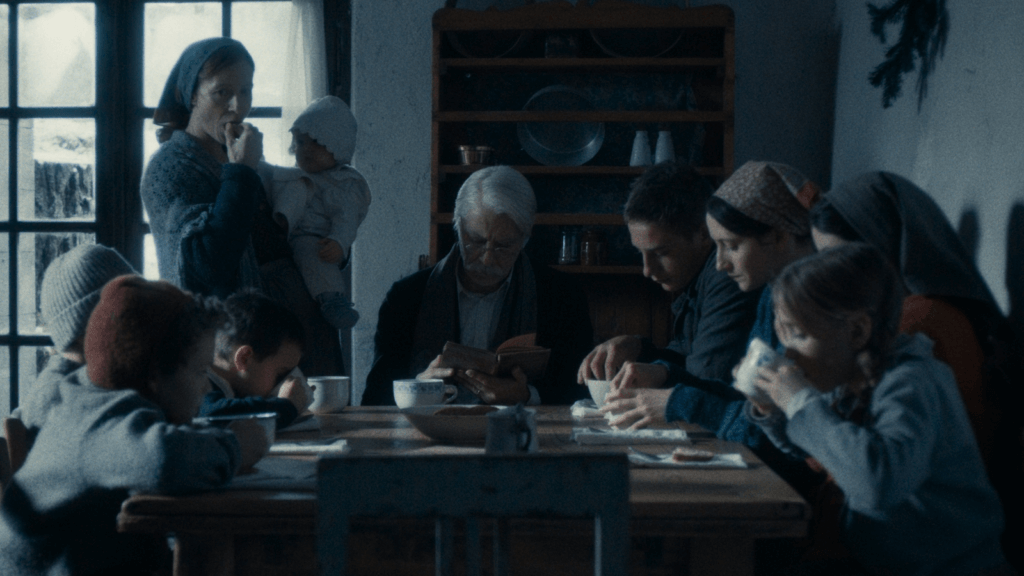
Lucia’s younger sisters ask her what happens on a wedding night. “It’s a bride’s duty,” she says without elaborating, smiling to herself about what she already knows. She has been sneaking away with Pietro, a detail known to the teen sister, Ada (Rachele Potrich), an inward character and the most interesting in the film. Ada’s grades aren’t good enough to warrant further schooling, according to her father, though she had hoped to escape her village. “Nothing’s special about me,” she confesses in church. She’s caught between the limited options outlined by her father, her faith, and her secret attraction to women. Ada spends time in the barn with a young woman who smokes in a thin blouse, and she’s clearly drawn to her, but she lives in a world where exploring those impulses remains impossible. As for the youngest Graziadei daughter, Flavia (Anna Thaler), she’s the smartest and most precocious. She likes to hide under desks and behind mirrors, and according to Cesare, her outward inquisitiveness will benefit most from additional schooling—and they can only afford to send one daughter to school.
Vermiglio is about Cesare’s daughters realizing they live in a man’s world; their hopes and dreams end with him, which isn’t so bad for Flavia, whereas Ada and Lucia aren’t as lucky. But it’s also a picture of a bygone era, with its highly muted and soft-filtered imagery looking like an old photograph. Some scenes have a specificity that could only be drawn from memory. Others have a more expressive touch, such as when chickens seem to mock and laugh at Ada with their clucking. It’s a transportive picture, and only some of the color-timing and smoky effects, many of them applied in post-production, suggest Delpero’s work is less about realism than seeing a memory through the filter of the mind’s eye—aestheticized and often quite beautiful in its expansive mountain vistas and snow-covered trees. A similar visual quality appears in Women Talking (2022); they have similar themes, too, though Delpero resists over-articulating her commentary in the dialogue and narrative.
Vermiglio, which won the Venice Film Festival’s Grand Jury Prize and other awards, is a nuanced and never overstated film. It moves at the pace of rural mountain life, slow and deliberate. Its scenes have a quiet decorum so that the moment feels all the more powerful when the drama breaks that mood. Take when Adele gives birth to yet another child, and Cesare scolds their son for picking flowers, seemingly from the neighbor’s garden, for his mother. “After ten births, you’ve never given me a single flower,” she defends. Cesare then scolds her for disrespecting him in front of the children. Or consider when Flavia gets her first period, and neither parent bothers explaining what’s happening to the confused child. These harsh moments reveal how this seemingly noble man and quaint society have limits tied to patriarchal power. Vermiglio depicts a world where sympathy extends as far as Cesare’s authority allows, and no further. There is some solidarity between mother and daughters, and also among sisters, but that has its limits, too. Despite its nostalgia, serene visuals, and lovingly recollected details, it’s a quietly devastating experience.
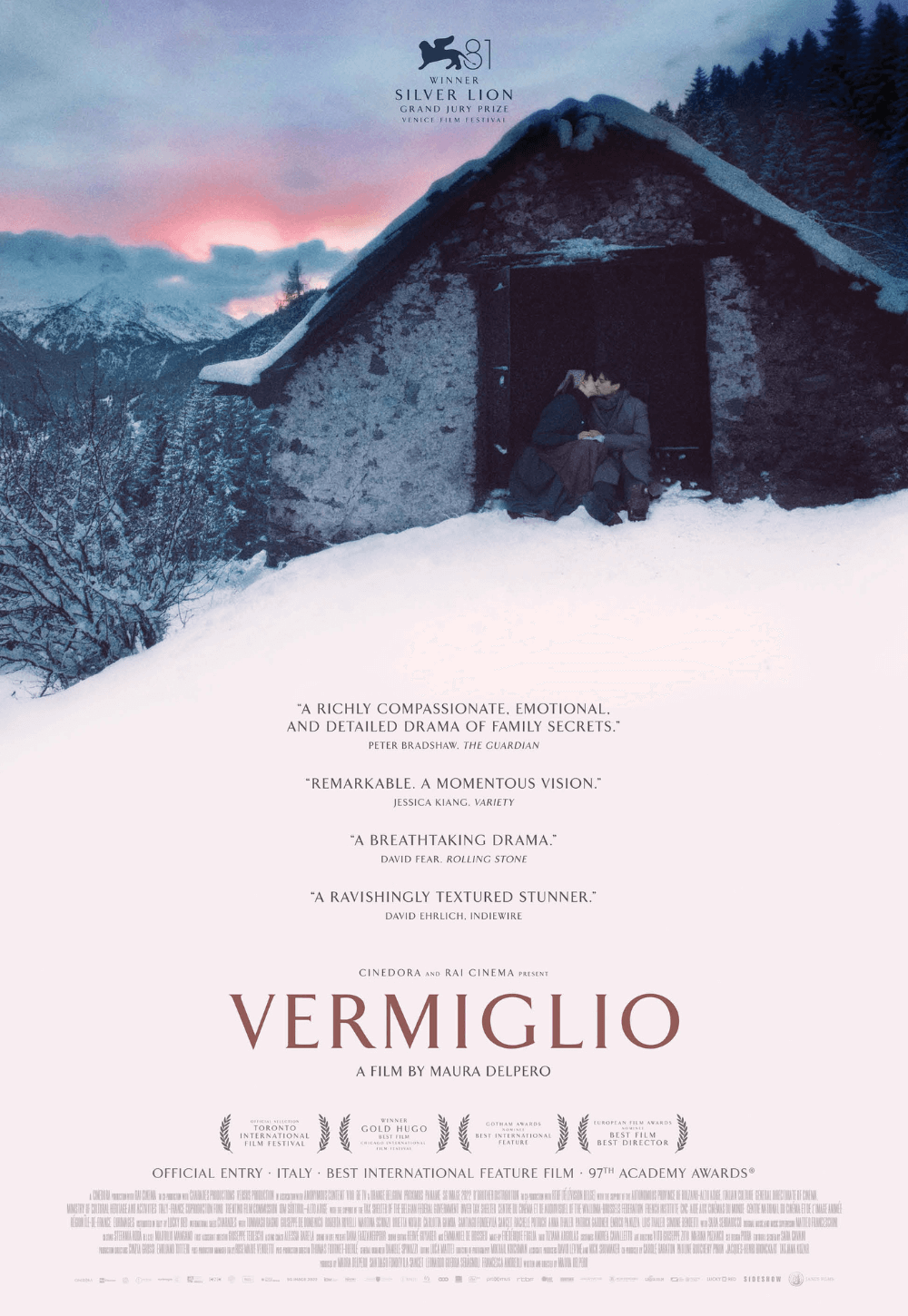
Consider Supporting Deep Focus Review
I hope you’re enjoying the independent film criticism on Deep Focus Review. Whether you’re a regular reader or just occasionally stop by, please consider supporting Deep Focus Review on Patreon or making a donation. Since 2007, my critical analysis and in-depth reviews have been free from outside influence. Becoming a Patron gives you access to exclusive reviews and essays before anyone else, and you’ll also be a member of a vibrant community of movie lovers. Plus, your contributions help me maintain the site, access research materials, and ensure Deep Focus Review keeps going strong.
If you enjoy my work, please consider joining me on Patreon or showing your support in other ways.
Thank you for your readership!
Brian Eggert | Critic, Founder
Deep Focus Review




